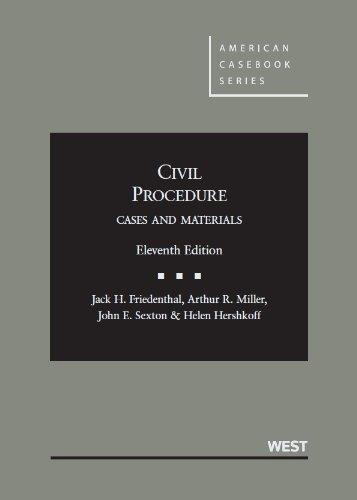2. The classic definition of transaction for purposes of a counterclaim is found in MOORE v. NEW...
Question:
2. The classic definition of transaction for purposes of a counterclaim is found in MOORE v. NEW YORK COTTON EXCHANGE, 270 U.S. 593, 46 S.Ct. 367, 70 L.Ed. 750 (1926).
Plaintiff sought to compel defendant to install a price quotation ticker in plaintiff’s place of business. Defendant counterclaimed for damages, alleging that although plaintiff had been denied permission to use quotations from defendant’s exchange, plaintiff “was purloining them and giving them out.” In the course of holding defendant’s counterclaim compulsory under former Equity Rule 30, the Court said:
* * * “Transaction” is a word of flexible meaning. It may comprehend a series of many occurrences, depending not so much upon the immediateness of their connection as upon their logical relationship. The refusal to furnish the quotations is one of the links in the chain which constitutes the transaction upon which appellant here bases its cause of action. It is an important part of the transaction constituting the subject-matter of the counterclaim. It is the one circumstance without which neither party would have found it necessary to seek relief. Essential facts alleged by appellant enter into and constitute in part the cause of action set forth in the counterclaim. That they are not precisely identical,
Step by Step Answer:

Civil Procedure Cases And Materials
ISBN: 9780314280169
11th Edition
Authors: Jack Friedenthal, Arthur Miller, John Sexton, Helen Hershkoff






